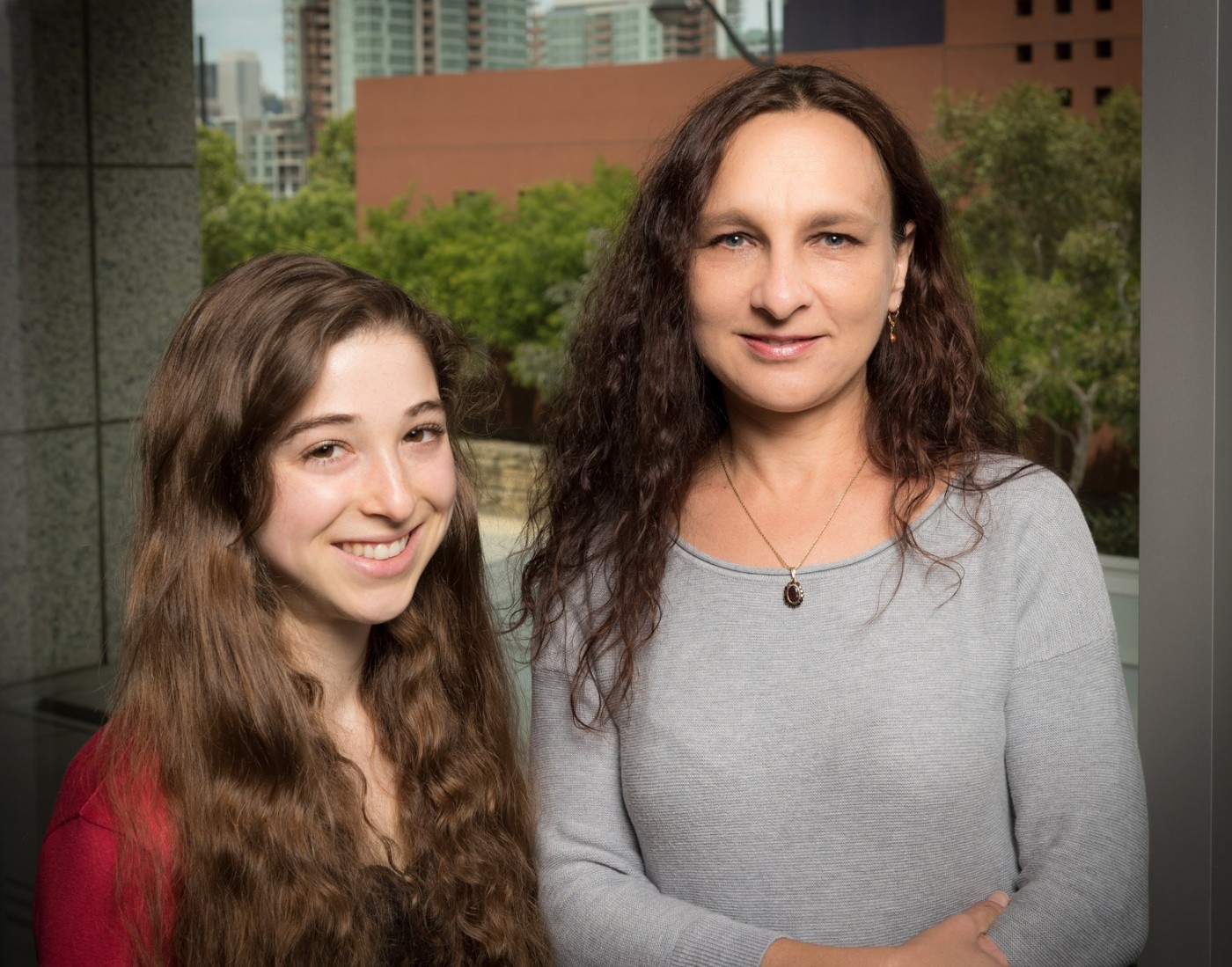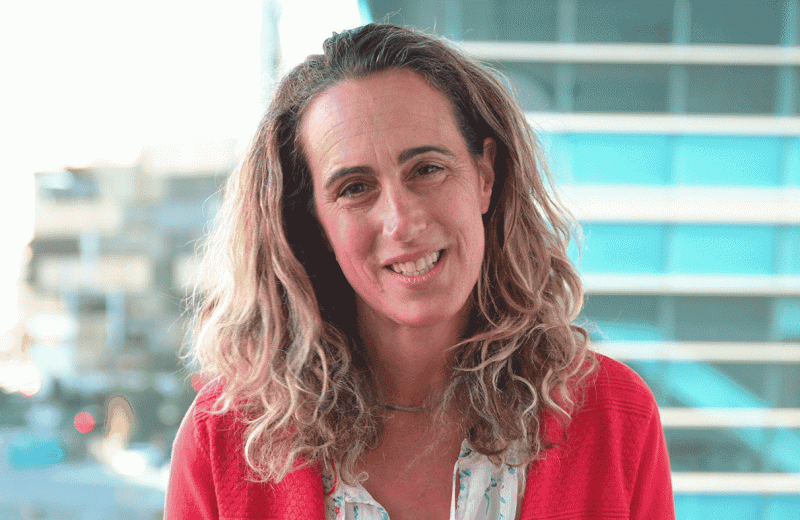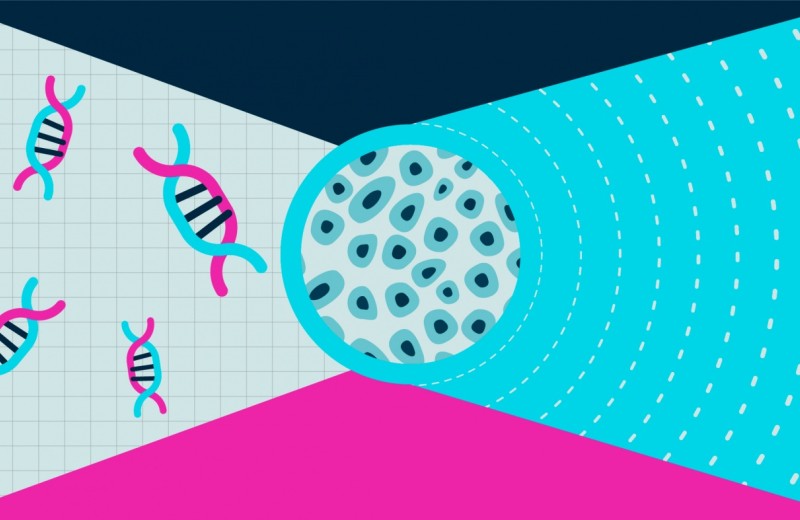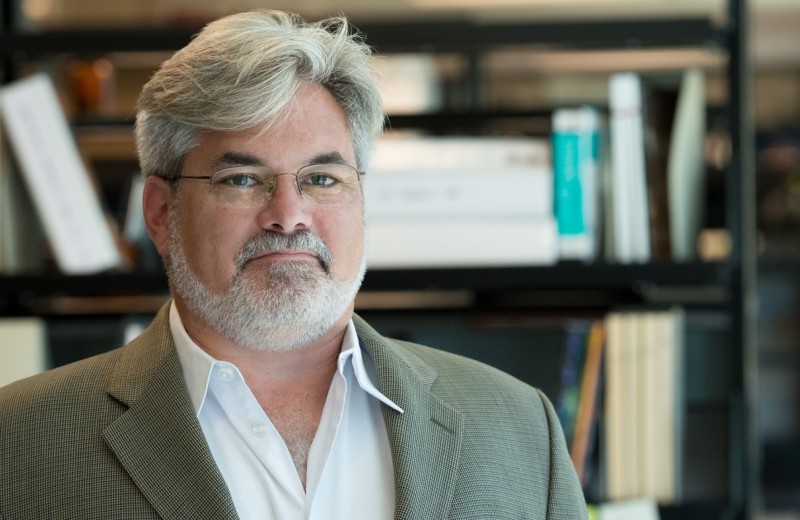Gladstone NOW: The Campaign Join Us on the Journey✕

Ms. Brianna Bibel and Dr. Gabriela Novak will use cutting-edge technology and robotic microscopy to study living neurons generated from patients with Huntington's disease.
Brianna Bibel, an undergraduate student at St. Mary’s College of California, has joined the lab of Steve Finkbeiner, MD, PhD for the summer after receiving a 2015 Donald A. King Summer Research Fellowship from the Huntington’s Disease Society of America (HDSA). She was selected based on her academic achievements, mentoring plan, rigorous experimental design, and ability to deliver significant findings over the course of a summer.
“The HDSA brought Brianna to my attention,” said Dr. Finkbeiner. “I was struck by her academic performance and commitment to studying neurodegenerative diseases at both the molecular and physiological levels.”
Ms. Bibel will be mentored by Gabriela Novak, PhD, a postdoctoral scientist in the Finkbeiner lab, in a joint project with Dr. Vanessa Wheeler, PhD, an associate professor of neurology at Harvard Medical School and an assistant geneticist at Massachusetts General Hospital.
“I am very much looking forward to mentoring Brianna,” said Dr. Novak. “She is a bright young scientist, and I am eager to see what results her project will yield.”
While volunteering for a hospice company, Ms. Bibel became interested in finding treatments or preventions for Huntington's disease. She plans to join an MD/PhD program to become a physician-scientist who specializes in neurodegenerative diseases.
“I hope to study the relationship between microscopic abnormalities and the symptoms they produce in Huntington's disease,” said Ms. Bibel. “I am honored to be working with Steve’s lab on my journey to this goal.”
In her project, Ms. Bibel will use cutting-edge technology to perform nanobiopsies of living neurons generated from induced pluripotent stem cells derived from patients with Huntington's disease. In these biopsies, she will determine if the number of CAG repeats expands over time. Then she will use robotic microscopy to determine whether this expansion affects when neurodegeneration symptoms appear.
“I was proud to support her application to the HDSA, and I am so pleased that she has joined our lab for the summer,” said Dr. Finkbeiner. “I think she has tremendous potential as a scientific researcher.”
In 2005, the HDSA established the Donald A. King Summer Research Fellowship program in honor of Donald King, who passed away in 2004. Mr. King advocated for Huntington's disease families and served as HDSA’s Chairman of the Board from 1999 to 2003. The purpose of this program is to attract the brightest young scientists into Huntington’s disease research to help clarify the biological mechanisms underlying this devastating disease.
Meet Gladstone: Julia Kaye
Meet Gladstone: Julia Kaye
Julia Kaye is a neuroscientist at Gladstone Institutes dedicated to unraveling the mysteries of neurodegenerative diseases. Outside the lab, Kaye enjoys skateboarding, surfing, and exploring nature with her family.
Profile ALS Huntington’s Disease Multiple Sclerosis Neurological Disease KayeConnecting the Dots: From Stem Cells to Human Health
Connecting the Dots: From Stem Cells to Human Health
Since Shinya Yamanaka discovered a method to create human induced pluripotent stem (iPS) cells, Gladstone researchers have built on this technology to create numerous iPS cell lines, coax iPS cells into a myriad of tissue types, use them as a tool to study disease, and even begin creating therapies using these cells.
Research (Publication) Stem Cell Core Alzheimer’s Disease Huntington’s Disease Finkbeiner Lab Huang Lab McDevitt Lab Srivastava Lab Yamanaka Lab CRISPR/Gene EditingTaube Philanthropies Announces $3 Million Gift to Stanford Medicine and Gladstone Institutes for Huntington’s Disease Research
Taube Philanthropies Announces $3 Million Gift to Stanford Medicine and Gladstone Institutes for Huntington’s Disease Research
The funded program will, for the first time, introduce gene editing and stem cell therapies in the search for a potential cure
Huntington’s Disease Finkbeiner Lab



